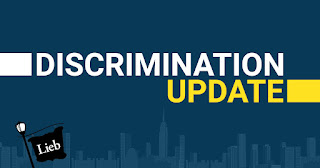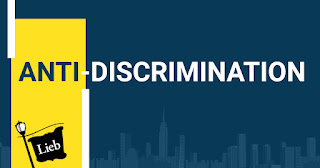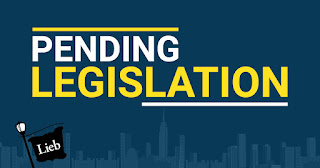- "The plaintiff bears the burden of showing by a preponderance of the evidence that she has a disability but can perform the essential functions of the job with a reasonable accommodation."
- “Essential functions are ‘the fundamental job duties of the employment position.’”
- "In determining what duties are 'fundamental,' the ADA expressly provides that 'consideration shall be given to the employer’s judgment as to what functions of a job are essential.'"
- “[I]f an employer has prepared a written description before advertising or interviewing applicants for the job, this description shall be considered evidence of the essential functions of the job.”
- "Also relevant are the “work experience of past incumbents in the job.”
- "The current work experience of incumbents in similar jobs.”
- "Whether the employer actually requires employees in the position to perform the functions that the employer asserts are essential” and “[i]f so, then the question of essentiality comes down to ‘whether removing the function would fundamentally alter that position.’
Tuesday, August 26, 2025
Remote Work and the ADA: Why Employers Should Think Twice Before Mandating Return to Office
Wednesday, June 18, 2025
SCOTUS Eliminates Bad Faith / Gross Misjudgment Standard for Education Disability Discrimination Claims
In a unanimous decision, in AJT v. Osseo Area Schools, Independent School District No. 279, SCOTUS clarified that Plaintiffs advancing discrimination claims under the ADA and 504 need not allege or prove that the school acted in bad faith or with a gross misjudgment when it denied a reasonable accommodation request in education.
This case gets it right, but what's interesting is the sideshow of the dispute between the concurring opinions of Thomas and Sotomayor as to whether a failure-to-accommodate always requires proof of intent to discriminate regardless that the statute is silent on that issue. Until that issue is resolved, Plaintiff's counsel would be well served in alleging discriminatory animus in their pleadings and in the heart of their case.
Friday, October 04, 2024
National Disability Employment Awareness Month - Are Your Accommodation Rights Being Violated?
On September 30, 2024, President Biden officially proclaimed October as National Disability Employment Awareness Month while promoting inclusive workplaces.
This year's focus is advancing access and inclusion which aligns with the core principles of the Americans with Disabilities Act. The ADA eliminated the barriers individuals with disabilities faces, including employment. The ADA requires employers to provide reasonable accommodations and ensure that job opportunities are accessible to those with disabilities. This allows the over 61 million Americans living with a disability the opportunity to be included, participate, and be respected in the workforce.
Remember, employers don't have a choice; if an accommodation is wrongfully denied, the employee can sue for back pay, front pay, emotional distress damages, punitive damages and attorneys' fees.
If you'd like to read President Biden's proclamation, click here.
Friday, January 12, 2024
Understanding the Justice Department's Proposed Rule on Accessible Medical Diagnostic Equipment for Disability Non-Discrimination
On 1/12/24, the Justice Department announced a proposed rule revision under the Americans with Disabilities Act (ADA), targeting the accessibility of Medical Diagnostic Equipment (MDE) in state and local government entities. This move is a significant step towards ensuring that medical diagnostic equipment is accessible to all, regardless of disability.
The rule, proposed by the Civil Rights Division of the Department of Justice, seeks to amend title II of the ADA regulations. The primary goal is to establish explicit requirements, including technical standards, for accessible MDE provided by state and local governments.
Key Provisions:
- Adoption of Standards: The rule proposes adopting standards set by the Architectural and Transportation Barriers Compliance Board for MDE.
- Scoping Requirements: Specifics on the amount and type of accessible MDE required.
- Deadline for Comments: Stakeholders can submit comments until February 12, 2024, primarily through the electronic Federal Docket Management System.
Impact on Medical Services: The lack of accessible MDE has been a barrier for people with disabilities, often leading to compromised health care. For instance, patients with disabilities have faced challenges in accessing routine examinations like mammograms and Pap smears due to inaccessibility. This rule aims to rectify such disparities.
Economic and Environmental Considerations: The Department invites comments on potential economic and environmental impacts of the rule. This consideration is crucial for balanced and sustainable implementation.
Thursday, November 30, 2023
Lieb at Law Represents Class Action Hearing Impair Tenants in Landmark NYC Disability Discrimination Case
Background of the Case
Elewood Torres, the plaintiff, filed a class-action lawsuit in 2022, challenging the failure of his Lower Manhattan apartment building's owners to provide necessary services for tenants with hearing disabilities. Despite the building at 174-184 Forsyth St. being funded to provide accessible housing, critical safety improvements have been lacking.
Key Issues at Stake
The lawsuit points to the absence of essential features such as video cameras in elevators, smoke alarms with strobe lights and bed shakers, and security staff proficient in American Sign Language. These deficiencies not only violate the Americans With Disabilities Act, and the NYS / NYC Human Rights Laws, but also pose a significant risk to the safety and well-being of the residents.
The City's Position and Plaintiff's Response
The city contends that it no longer owns the property and that the ADA does not apply to private residential complexes. However, Torres disputes this claim, highlighting that the ownership of the building reverted to the city due to breaches in the sale agreements. This aspect is crucial in determining the applicability of the ADA and the city's responsibilities.
Lieb at Law's Stance
Representing Torres, Lieb at Law's Associate Attorney, Richard Hermer-Fried, emphasized the gravity of the situation: "To this day, defendants have not provided bed rockers to wake tenants in case of a fire. It's utterly egregious that nothing's been done to protect these individuals." The firm's commitment to advocating for the rights of individuals with disabilities is evident in its vigorous pursuit of this case.
What's Next in the Case
With a preliminary injunction requested by Torres to compel the defendants to install the necessary improvements, and the court ordering documentation of such improvements, the case is poised for critical developments. Lieb at Law remains steadfast in its pursuit of justice for Elewood Torres and other similarly situated tenants.
Monday, July 25, 2022
Handicapped Parking Spaces Enforcement Updated
Starting on October 19, 2022, fines are going to be issued to any person who obstructs handicapped parking areas at a shopping center with one to four retail stores throughout New York State pursuant to S8822.
That is not to say that this is all that can happen if landlords don't enforce and/or provide for handicapped parking at their shopping centers. Landlords who do not provide for access for the disabled can be sued under the Americans with Disabilities Act (ADA) and state specific laws like the New York State Human Rights Law (NYSHRL). So, such landlords should actively enforce their handicapped parking by also towing violators. Nonetheless, individuals who obstruct such spaces can't be sued under the ADA, so, it's a welcome sign that such obstructors will, at least, be ticketed for their thoughtless infraction.
Friday, May 13, 2022
AI Employment Decisions Cause Disability Discrimination Per EEOC / DOJ
Many employers utilize artificial intelligence or algorithms to select new employees, monitor performance, and determine pay or promotions. There are scored tests and resume analysis that are both common place in the big business world. However, the EEOC and DOJ just shot a cannon across the bow of big business' boat by stating that "[t]hese tools may result in unlawful discrimination against people with disabilities in violation of the Americans with Disability Act (ADA)."
To determine if discrimination has occurred, consider the following questions:
- Was there an accommodations policy available and made known to employees / applicants?
- If not, there likely was discrimination.
- Does the AI / algorithm ask about the precise nature of the disability / medical condition?
- If so, there likely was discrimination.
Friday, May 06, 2022
Education Discrimination & Your Rights - What Victims Should Know
Education discrimination is illegal throughout the United States and in certain states, like New York, there are even greater protections, rights, and damages available to victims and their parents.
When it comes to education, you and your child have a right to be free from harassment, bullying and other forms of wrongful discrimination that is perpetrated by teachers, the administration, or even other students (your peers). This applies to public schools, non-religious private schools, colleges and universities. Simply, you and your child can't be denied a right to learn because of who you are.
Anti-discrimination laws in education apply regardless of whether the discrimination is explicit or implicit. While we've all heard about equal access to sports between the sexes / genders, or even teachers having sex with their students, discrimination lawsuits more commonly concern bullying of minorities, the failure to give testing accommodations to disabled students, and, even, the failure to extend days off to religious observers. Simply, it is the administration's duty to make education equally accessible to all and this failure can result in a lawsuit.
On the federal level, Title IX of the Educational Amendments protects against sex discrimination while Title VI of the Civil Rights Act addresses race, color, and national origin discrimination, and finally Title II of the Americans with Disabilities Act (ADA) protects against disability discrimination. However, these federal laws on education discrimination were just limited by the Supreme Court and can, mostly, no longer result in victims receiving emotional distress or punitive damages.
Nonetheless, states, like New York, provide victims with the right to recover for their emotional distress and punitive damages. Moreover, New York adds protections by covering victims of discrimination with respect to additional categories, such as race, color, religion, disability, national origin, sexual orientation, military status, sex, age and marital status. New York even makes clear that it's own public school districts can be held accountable for discrimination based on an amendment to its laws from July 25, 2019, A3425.
If you or your child were a victim of education discrimination, it is important to act quickly and file your claim after hiring a lawyer. In New York State, claims against public school districts must be filed within 3 months after the discriminatory event. While the State's anti-discrimination laws otherwise provide up to 3 years for lawsuits against non-public schools (i.e., private schools / colleges / universities), it's nonetheless important to act quickly to preserve all the discriminatory evidence (i.e., audio / video), which is done by immediately sending what is known as a spoliation notice.
To be clear, discrimination victims, in New York, can recover compensatory damages (being made whole with emotional distress damages), punitive damages (punishment damages), and your attorneys' fees. The perpetrator can lose their license (if licensed as educators or otherwise), be required to take trainings, and be ordered to stop their offensive behavior. There are fines and more. Discrimination is wrong and must be stopped.
Don't be afraid to speak-up. If you are advancing an anti-discrimination right for yourself or your child, you are protected from retaliation. Even if it is ultimately found that you or your child was not discriminated against, you both can nonetheless be compensated for facing unlawful coercion, intimidation, threats, or other types of interference with your anti-discrimination rights. Again, this is not just true if you are advancing your own rights, it also applies if you are raising your child's rights, or another student's rights, because anti-retaliation laws protect anyone who aids and/or encourages someone else in exercising their rights to be free from discrimination.
Attorney Advertising
Tuesday, April 19, 2022
Handicapped Parking Discrimination - Proposed Legislation
Wednesday, January 13, 2021
Dollar General to Pay Workers to Get COVID Vaccine, But Can They Without Getting Sued for Discrimination?
According to Business Insider, Dollar General is paying their employees to get the COVID vaccine, but is that legal?
Back in 2017, the federal courts, in AARP v. EEOC, addressed the issue of paying employees for participation in wellness programs and found that both the Americans with Disabilities Act and the Genetic Information Nondiscrimination Act were violated because the incentives permitted rendered the programs not voluntary, as required by law. The incentive, at issue in the case, was "up to 30% of the cost of self-only coverage."
How does that comport with what Dollar General is now doing?
They are offering four hours of pay to their employees.
Is that too much to make participation voluntary?
Ironically, the Equal Employment Opportunity Commission is proposing a new regulation about this voluntary standard in the Federal Register for public comment. This new regulation proposes to change the 30% incentive limit (as addressed in the federal case above) to a de minimis incentive limit. In fact, the regulation gives examples of a permitted de minimis incentive, like a water bottle or modest gift card.
Isn't four hours of pay worth a lot more than a water bottle? Is Dollar General going to get sued for this program. What do you think?
Monday, June 29, 2020
EEOC Guidance on Antibody Tests and COVID-19 Tests
The EEOC advised that antibody tests should not be used to make decisions about returning to the workplace and currently does not meet the Americans with Disabilities Act (ADA)’s “job related and consistent with business necessity” standard for medical examinations for current employees. This standard applies to any mandatory medical test for employees. Thus, an antibody test may not be required for an employee to enter the workplace and employers should be aware that requiring antibody tests could be the basis of a discrimination claim.
On the other hand, tests which determine if someone has an active case of COVID-19 are permissible under the ADA and employers may use it to make decisions on whether an employee should return to the workplace. The distinction is that an employee who is currently infected with COVID-19 poses “a direct threat to the health of others.” However, employers should still be aware of the possibility of an employee testing false-positive or false-negative and employers should ensure that tests are accurate and reliable.
Nonetheless, employers are encouraged to practice social distancing, regular handwashing, and the wearing of PPE’s as there is no certainty that employees will not be infected with COVID-19 after the test is administered. In addition, employers should contact counsel to have a tailored COVID-19 safety plan compliant with federal anti-discrimination laws and regulations while ensuring a safe workplace for employees.
Monday, February 19, 2018
House Approves ADA Education and Reform Act of 2017
As an aside, the Bill also provides for educational programs designed to promote public accommodations for persons with a disability, but such programs will require regulations prior to implementation so it is unknown how such programs will ultimately look. Regardless, the Bill provides for training of professionals whose job it is to assess accessibility of properties, such as Certified Access Specialists (CASp). The CASp program was created through California Senate Bill 262 and currently, New York does not have a similar program in place. Nonetheless, New York commercial real estate professionals may hire accessibility specialists certified by the International Code Council or similar programs.
As such, commercial real estate professionals should immediately learn more about these specialists to obtain an immediate assessment of their properties as it seems that a positive finding of compliance will be a good mitigator to suit.
To track H.R. 620’s progress through the Senate, use Govtrack.










